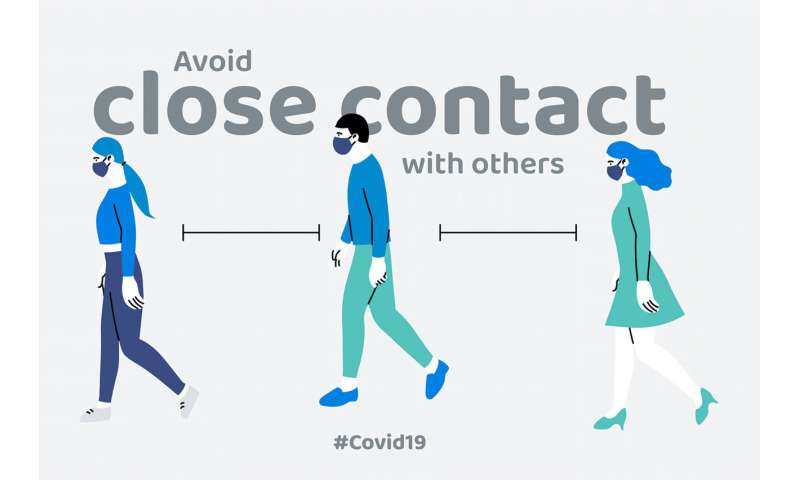
What is the best way to clean your phone? How many minutes are needed for disinfectant to kill the new coronavirus? How can you keep yourself and others safe in the weeks and months to come?
A new online class provides practical, up-to-date, and scientifically proven answers during this threatening time of severe disruption. COVID-19: How to be Safe and Resilient, an hour-long course that is free and accessible to anyone, was launched Friday morning by Northeastern’s Global Resilience Institute. Its purpose is to provide, in one place, a credible, digestible collection of skills to help manage and survive the pandemic.
In addition to the online course, the institute has launched a complementary COVID-19 website.
“Somebody needed to tell us what we should be doing in straightforward and meaningful ways,” says Stephen Flynn, founding director of the Global Resilience Institute. “All of us need basic skills to stay safe as COVID-19 rapidly spreads into our communities and places so many lives at risk.”
The online course is geared for young people who, in most cases, are among the least likely to die from COVID-19, says Flynn. But they play a crucial role in the spread of the disease.
“If we’re younger and we have a healthy immune system, we almost certainly will be able to get through this, even if we’re infected,” Flynn says. “But there is a percentage of the population—close to 20 percent—that is facing the highest risk for becoming seriously ill. And those are people over 60, including those who have heart disease, high blood pressure, diabetes, cancer; if they get infected, they are going to need significant care. And our healthcare system simply can’t provide for the surge of that many sick people without crashing.
“What we’re trying to do is to slow things down in order to ideally limit the incidence of vulnerable people getting this virus. And we can only do that by maintaining physical distancing.”
The modules, which viewers can watch at their own pace, offer science-based solutions and advice from scientists, researchers, and health-care providers, Flynn says.
The topics include how to master washing your hands; avoid touching your face to reduce risk; manage your household; disinfect your surfaces; properly use masks and gloves, navigate public spaces, stay connected with older relatives, neighbors and friends; and help your community become more resilient.
Flynn hopes that the course will be shared as widely as possible with other colleges and universities, as well as employers and anyone with questions about the disease.
“We are drowning in news and information about the coronavirus as an emergency—what is the federal government doing, what is the world doing?” Flynn says. “But who is talking to people and saying, “OK, this is what you do to keep yourself and your household safe, especially if somebody is vulnerable. This is how you navigate the community in a way that keeps yourself and other people safe.”
“And the last, most important missing piece of it is, how do we cope?”
One of the major contributors is Alisa Lincoln, a professor at the Bouvé College of Health Sciences, who provided counsel on dealing with the stress of COVID-19.
Reliable information, laid out coherently by trusted sources, is crucial to helping people cope with pandemic. Flynn’s work on the project taught him that disinfectant needs five to 10 minutes in order to kill the virus. Robin White, executive director of the Global Resilience Institute, contributed the “Four Cs” approach: Clear the surface; clean it; cover it with disinfectant; then complete the process by rinsing or removing the disinfectant.
“How many of us have been trained to do this?” Flynn says. “This is the kind of information that is practiced in hospitals— and sometimes not to the greatest effect, either, because you can see that it takes time to do all of that. But people need to be trained in it, and so we outline it very clearly.”
An interdisciplinary effort of more than 30 people within Northeastern and beyond have scrambled to produce the course in one week. Among the contributors was Gavin Macgregor-Skinner, a Penn State professor who recently spent 18 days in Hong Kong helping to develop an online program to deliver useful information on the coronavirus.
The institute’s COVID-19 website will be updated as relevant information continues to be verified, Flynn says.
Source: Read Full Article
